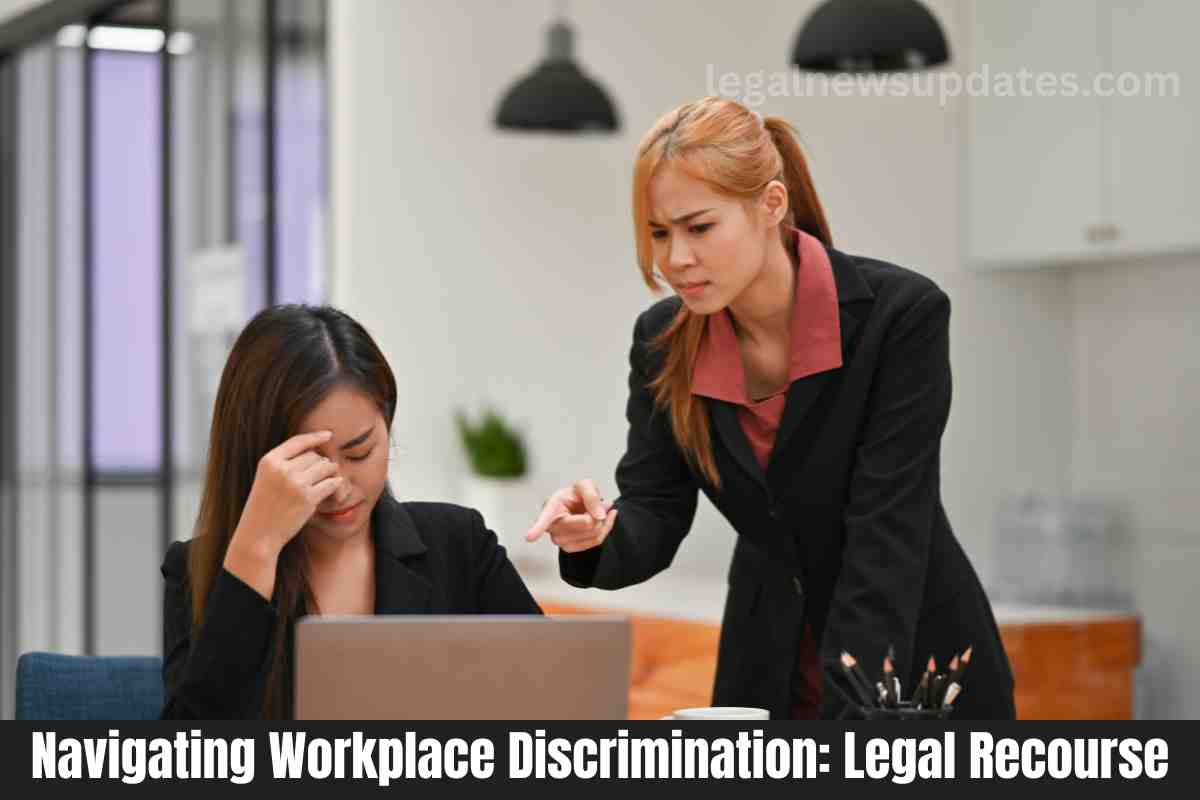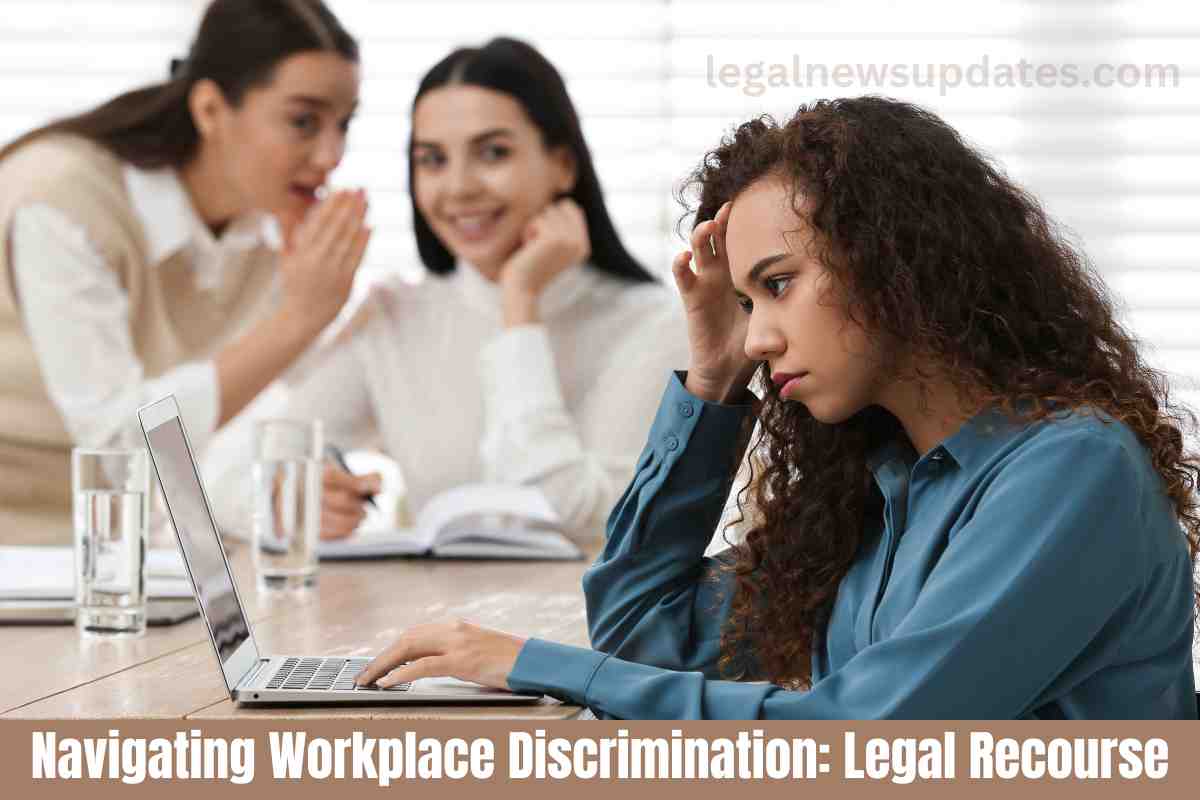Navigating Workplace Discrimination: Legal Recourse

Title: Navigating Workplace Discrimination: Legal Recourse
Navigating Workplace Discrimination: Legal The fight against workplace discrimination remains a pressing issue in today’s corporate landscape; despite strides in awareness and legislation, discrimination based on race, gender, age, disability, and other factors persists, affecting individuals and tarnishing workplace cultures. In this comprehensive guide, we delve into the legal recourse available to victims of discrimination and provide expert advice on navigating these challenging situations.
Understanding Workplace Discrimination: Navigating Workplace Discrimination: Legal Recourse
Workplace discrimination takes various forms, ranging from overt acts to subtle biases. It can manifest in hiring practices, promotions, pay discrepancies, and everyday interactions. Discrimination not only undermines the rights and dignity of employees but also erodes trust and morale within organizations. Recognizing the signs of discrimination is crucial for taking proactive steps to address and combat it effectively.
Legal Framework Against Discrimination
Numerous laws at the national and international levels aim to combat workplace discrimination. In the United States, key legislation includes Title VII of the Civil Rights Act, the Americans with Disabilities Act (ADA), the Age Discrimination in Employment Act (ADEA), and the Equal Pay Act. These laws protect against discrimination in hiring, firing, compensation, and other employment practices. Similarly, international conventions such as the International Labour Organization’s (ILO) Discrimination (Employment and Occupation) Convention, 1958 (No. 111) set standards for promoting equality in the workplace globally.
Seeking Legal Recourse: Navigating Workplace Discrimination: Legal Recourse
Victims of workplace discrimination have legal avenues to pursue justice and seek remedies for the harm they’ve endured. Filing a complaint with the Equal Employment Opportunity Commission (EEOC) or equivalent regulatory bodies is often the initial step. These agencies investigate discrimination claims and may facilitate mediation or pursue legal action on behalf of the aggrieved party. In cases where a resolution isn’t reached, individuals have the right to file lawsuits against their employers for damages and injunctive relief.
Challenges and Considerations
Navigating the legal process of addressing workplace discrimination poses several challenges. Each step requires careful consideration and strategic planning, from gathering evidence to proving discriminatory intent. Additionally, fear of retaliation and the potential strain on professional relationships can deter individuals from coming forward with their complaints. Understanding the risks and complexities involved is essential for making informed decisions about pursuing legal recourse.
Expert Advice for Victims: Navigating Workplace Discrimination: Legal Recourse
In the face of workplace discrimination, seeking guidance from legal experts and support networks is invaluable. Employment law attorneys specializing in discrimination cases can provide personalized advice and representation throughout the legal proceedings.
Promoting Diversity and Inclusion
While legal action is crucial for holding perpetrators of discrimination accountable, actual progress requires a proactive commitment to fostering diversity and inclusion in the workplace. Employers must implement policies and practices that promote equal opportunities for all employees, regardless of their background or identity—from diversity training programs to inclusive recruitment strategies, investing in a culture of respect and equity benefits employees and organizations.
Conclusion: Navigating Workplace Discrimination: Legal Recourse
Workplace discrimination remains a persistent challenge in today’s society, but individuals are not powerless in the face of injustice. By understanding their rights, seeking legal recourse, and victims of discrimination can confront these issues head-on and work towards building more equitable workplaces. Together, through collective action and unwavering resolve, we can strive towards a future. Where everyone is valued and respected in the workplace, free from discrimination and bias.









